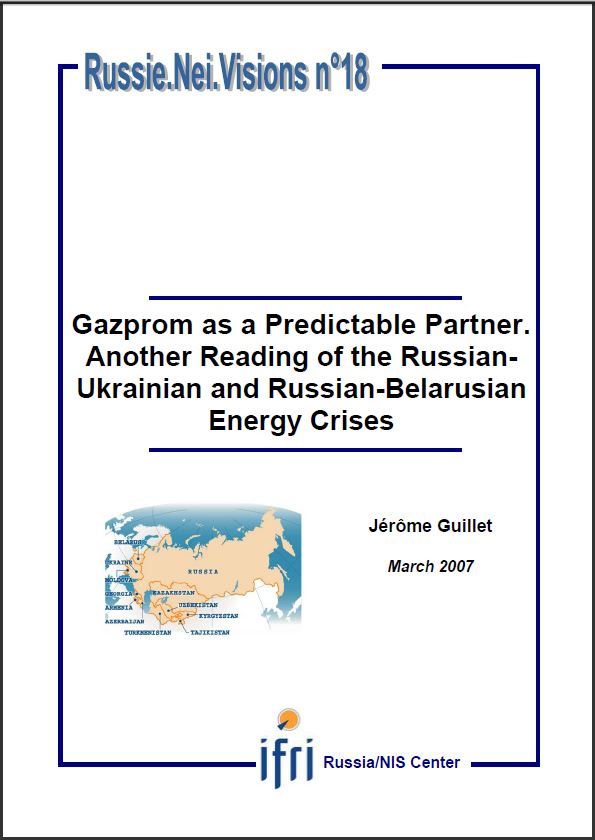Gazprom as a Predictable Partner. Another Reading of the Russian-Ukrainian and Russian-Belarusian Energy Crises

The recent crises over oil & gas deliveries from Russia to Ukraine and Belarus have triggered alarm and virulent criticism in the West.
The recent crises over oil & gas deliveries from Russia to Ukraine and Belarus have triggered alarm and virulent criticism in the West. This article describes how these conflicts are in fact not very different from those that took place in the early 1990s and reflect behind-the-scene conflicts between powerful factions inside the Kremlin and in Ukraine rather than the exercise of an "energy weapon". In the context of a European energy policy driven by Britain's panic at becoming a gas importer and by the ideological zeal to liberalize, the West should worry less about the exercise of a purported aggressive geopolitical strategy and more about Putin's lack thereof, and his inability to control his warring lieutenants. Above all, the West should stop considering that Russia owes Europe any gas beyond its contractual obligations, which it fulfills with alacrity.
Download the full analysis
This page contains only a summary of our work. If you would like to have access to all the information from our research on the subject, you can download the full version in PDF format.
Gazprom as a Predictable Partner. Another Reading of the Russian-Ukrainian and Russian-Belarusian Energy Crises
Related centers and programs
Discover our other research centers and programsFind out more
Discover all our analysesThe Caspian Sea as an Emerging Energy Hub : Potentials and Limitations
This report analyzes the prospects of the Caspian Sea region — and its key actors except for Russia and Iran — becoming an important energy hub serving the needs of the European Union (EU).
The European Union's Strategic Test in Georgia
The political crisis brewing in Georgia is of an existential nature for the country. What is at stake is Georgia's future as a democratic and sovereign European nation (EU).
Commanders of Putin's Long War: Purged, Reshuffled and Disgruntled
The trend of reshuffling the Russian top military command in the course of a fast-evolving and far from successful war has progressed unevenly both across the Armed Forces’ structures and in time. The rationale for and timing of the abrupt cadre decisions made by Commander-in-Chief Putin often defy logical explanation, and the rare official clarifications are no more informative than the usual information blackout.
Russian Military Manpower After Two and a Half Years of War in Ukraine
In addition to a military victory in Ukraine, the Russian leadership is planning to build up sizable troop formations for a possible conflict with NATO in the Baltic region and the Kola Peninsula. In particular, current plans aim for the military manpower to grow by about 350,000, reaching a total of 1.5 million soldiers and commanders. In the context of the current conflict in Ukraine, this cannot be accomplished without a new wave of mass mobilization.









